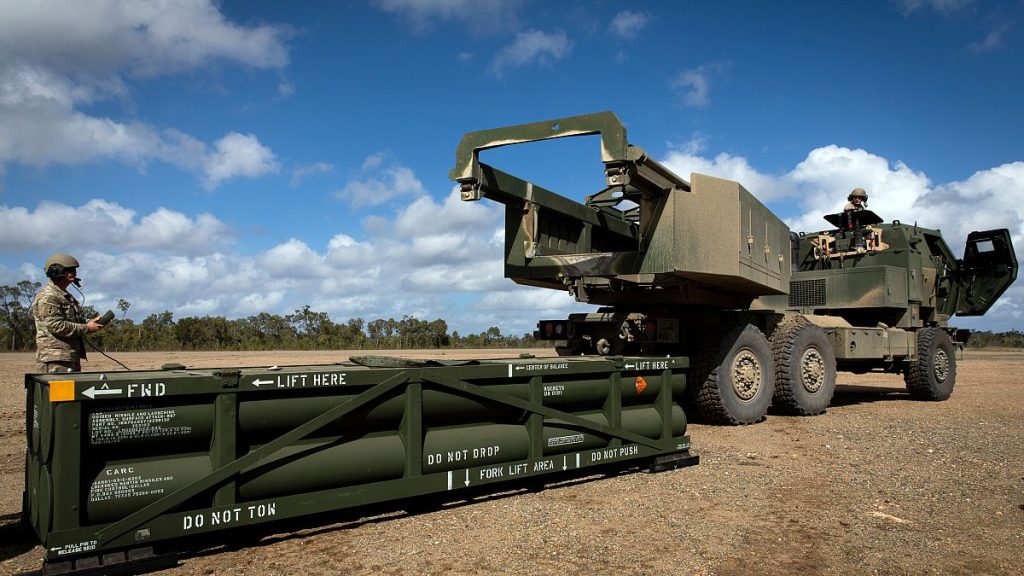Ukraine’s president, Volodymyr Zelenskyy, has raised concerns about Russia’s intentions to disrupt the Global Peace Summit scheduled for June in Switzerland. Zelenskyy revealed that Ukraine has credible intelligence indicating Russia’s plans to sabotage the meeting by reducing the number of participating countries and thwarting peace efforts. This announcement comes at a time when tensions between Ukraine and Russia have escalated, with the United States confirming the secret delivery of long-range missiles to Ukraine to be used against Russia on the battlefield. President Joe Biden approved the delivery of Army Tactical Missile Systems (ATACMS) in response to Russia’s procurement of weapons from other countries and escalated attacks on civilian infrastructure in Ukraine.
Speaking at a press conference in Washington, national security adviser Jake Sullivan confirmed the shipment of the ATACMS, although he did not disclose the specific number sent to Ukraine. The missiles were part of the military aid package signed into law on Wednesday, totaling €57 billion for Ukraine. Sullivan expressed confidence that the ATACMS would have a positive impact on the battlefield against Russia. Despite the delivery of these missiles, Zelenskyy’s warning about Russia’s intentions to disrupt the upcoming Global Peace Summit adds another layer of concern regarding potential future conflicts between the two nations. Switzerland is set to host the two-day international conference at Lake Lucerne in June, with expectations of 80-100 countries participating, although Russia’s attendance remains uncertain.
The delivery of long-range missiles to Ukraine comes in response to Russia’s procurement and utilization of North Korea’s ballistic missiles against Ukraine, as well as intensified attacks on civilian infrastructure. The United States’ decision to provide military aid reflects its commitment to supporting Ukraine in its defense against Russian aggression. The ATACMS are viewed as a strategic addition to Ukraine’s arsenal to counter Russian military advancements, with President Biden authorizing the delivery to strengthen Ukraine’s position on the battlefield. The confirmation of the missile shipment underscores the ongoing tensions and military dynamics between Ukraine and Russia, with both nations engaged in a protracted conflict that has attracted international attention and intervention.
The concerns raised by President Zelenskyy about Russia’s alleged plans to disrupt the upcoming Global Peace Summit highlight the fragile diplomatic relations between the two countries. Zelenskyy’s claims of credible intelligence indicating Russia’s intention to undermine the summit by limiting participation and obstructing peace efforts raise questions about the prospects for peaceful resolution in the region. The announcement of the summit in Switzerland was met with anticipation for potential progress towards peace, but Zelenskyy’s warning serves as a reminder of the challenges and obstacles that remain in achieving lasting peace in the region. Switzerland’s hosting of the international conference is seen as an opportunity for dialogue and cooperation among participating countries, but the absence or disruptive actions of key players like Russia could hinder the summit’s effectiveness in addressing global peace issues.
The geopolitical implications of the United States’ military aid to Ukraine and Russia’s alleged plans to disrupt the Global Peace Summit underscore the complex dynamics at play in the ongoing conflict between the two nations. The delivery of long-range missiles to Ukraine represents a strategic move by the US to bolster Ukraine’s defense capabilities against Russian aggression, signaling continued support for the country’s sovereignty and security. However, Russia’s suspected efforts to disrupt the upcoming summit highlight the challenges posed by diplomatic tensions and conflicting interests among key stakeholders in the region. The intersection of military escalation and diplomatic initiatives underscores the delicate balance between conflict resolution and power dynamics in the context of international relations, highlighting the need for sustained efforts towards peaceful coexistence and resolution of disputes. The evolving situation in Ukraine and Russia continues to shape global perceptions and responses to the ongoing conflict, with implications for regional stability and international security.


